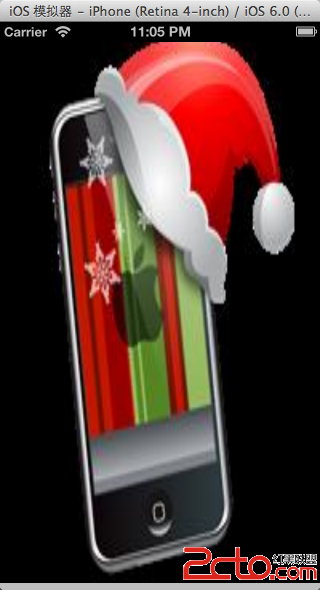IOS深度拷貝,NSArray,NSDictionary的分類(Category)
編輯:IOS開發綜合
深度拷貝和淺拷貝的區別就自己找個地方看下。。。。。。。最下面貼上了NSArray和NSDictionary的深度拷貝分類方法
代碼中常用的調試需要用的代碼:這樣日志只會在調試時候打印,發布的時候並不會出現
#ifdef DEBUG
#ifndef DLog
# define DLog(fmt, ...) {NSLog((@"%s [Line %d] " fmt), __PRETTY_FUNCTION__, __LINE__, ##__VA_ARGS__);}
#endif
#ifndef ELog
# define ELog(err) {if(err) DLog(@"%@", err)}
#endif
#else
#ifndef DLog
# define DLog(...)
#endif
#ifndef ELog
# define ELog(err)
#endif
#endif下面這兩段代碼都是項目中拷貝出來的,所以特意備注一下。
SJDeepCopy.h文件
#import@interface NSArray (SJDeepCopy) - (NSArray*)deepCopy; - (NSMutableArray*) mutableDeepCopy; @end @interface NSDictionary (SJDeepCopy) - (NSDictionary*)deepCopy; - (NSMutableDictionary*)mutableDeepCopy; @end
SJDeepCopy.m文件
#import "SJDeepCopy.h"
@implementation NSArray (SJDeepCopy)
- (NSArray*)deepCopy {
NSUInteger count = [self count];
id cArray[count];
for (NSUInteger i = 0; i < count; ++i) {
id obj = [self objectAtIndex:i];
if ([obj respondsToSelector:@selector(deepCopy)]) {
cArray[i] = [obj deepCopy];
}
else if ([obj respondsToSelector:@selector(copyWithZone:)]) {
cArray[i] = [obj copy];
}
else {
DLog(@"********Error:NSArray DeepCopy Failed!!! ********");
return nil;
}
}
NSArray *ret = [NSArray arrayWithObjects:cArray count:count];
return ret;
}
- (NSMutableArray*)mutableDeepCopy {
NSUInteger count = [self count];
id cArray[count];
for (NSUInteger i = 0; i < count; ++i) {
id obj = [self objectAtIndex:i];
// Try to do a deep mutable copy, if this object supports it
if ([obj respondsToSelector:@selector(mutableDeepCopy)]) {
cArray[i] = [obj mutableDeepCopy];
}
// Then try a shallow mutable copy, if the object supports that
else if ([obj respondsToSelector:@selector(mutableCopyWithZone:)]) {
cArray[i] = [obj mutableCopy];
}
else if ([obj respondsToSelector:@selector(copyWithZone:)]) {
cArray[i] = [obj copy];
}
else {
DLog(@"********Error:NSArray MutableDeepCopy Failed!!! ********");
return nil;
}
}
NSMutableArray *ret = [NSMutableArray arrayWithObjects:cArray count:count];
return ret;
}
@end
@implementation NSDictionary (SJDeepCopy)
- (NSDictionary*)deepCopy {
NSUInteger count = [self count];
id cObjects[count];
id cKeys[count];
NSEnumerator *e = [self keyEnumerator];
NSUInteger i = 0;
id thisKey;
while ((thisKey = [e nextObject]) != nil) {
id obj = [self objectForKey:thisKey];
if ([obj respondsToSelector:@selector(deepCopy)]) {
cObjects[i] = [obj deepCopy];
}
else if([obj respondsToSelector:@selector(copyWithZone:)]) {
cObjects[i] = [obj copy];
}
else {
DLog(@"********Error:NSDictionary DeepCopy Failed!!! ********")
return nil;
}
if ([thisKey respondsToSelector:@selector(deepCopy)]) {
cKeys[i] = [thisKey deepCopy];
}
else if ([thisKey respondsToSelector:@selector(copyWithZone:)]) {
cKeys[i] = [thisKey copy];
}
else {
DLog(@"********Error:NSDictionary Key DeepCopy Failed!!! ********")
return nil;
}
++i;
}
NSDictionary *ret = [NSDictionary dictionaryWithObjects:cObjects forKeys:cKeys count:count];
return ret;
}
- (NSMutableDictionary*)mutableDeepCopy {
unsigned int count = [self count];
id cObjects[count];
id cKeys[count];
NSEnumerator *e = [self keyEnumerator];
unsigned int i = 0;
id thisKey;
while ((thisKey = [e nextObject]) != nil) {
id obj = [self objectForKey:thisKey];
// Try to do a deep mutable copy, if this object supports it
if ([obj respondsToSelector:@selector(mutableDeepCopy)]) {
cObjects[i] = [obj mutableDeepCopy];
}
// Then try a shallow mutable copy, if the object supports that
else if ([obj respondsToSelector:@selector(mutableCopyWithZone:)]) {
cObjects[i] = [obj mutableCopy];
}
else if ([obj respondsToSelector:@selector(copyWithZone:)]) {
cObjects[i] = [obj copy];
}
else {
DLog(@"********Error:NSDictionary MutableDeepCopy Failed!!! ********")
return nil;
}
// I don't think mutable keys make much sense, so just do an ordinary copy
if ([thisKey respondsToSelector:@selector(deepCopy)]) {
cKeys[i] = [thisKey deepCopy];
}
else if([thisKey respondsToSelector:@selector(copyWithZone:)]) {
cKeys[i] = [thisKey copy];
}
else {
return nil;
}
++i;
}
NSMutableDictionary *ret = [NSMutableDictionary dictionaryWithObjects:cObjects forKeys:cKeys count:count];
return ret;
}
@end
相關文章
+- iOS模糊效果的完成辦法
- iOS中NSTimer的invalidate調用之後
- iPhone開發--子view隨著父view的frame大小而自動改變大小
- iOS UI根底學習 Note_dayTwo
- 還有 13 天,蘋果就要打開 HTTP 大門了
- 用 JSQMessagesViewController 創建一個 iOS 聊天 App - 第 3 部分
- iOS實現從背景圖中取色的代碼
- iOS中 MPMoviePlayer 實現視頻音頻播放 作者:韓俊強
- iOS8 UITableView動態加載cell的高度
- IOS6新特性集合視圖<UICollectionView>CircleLayout實踐




